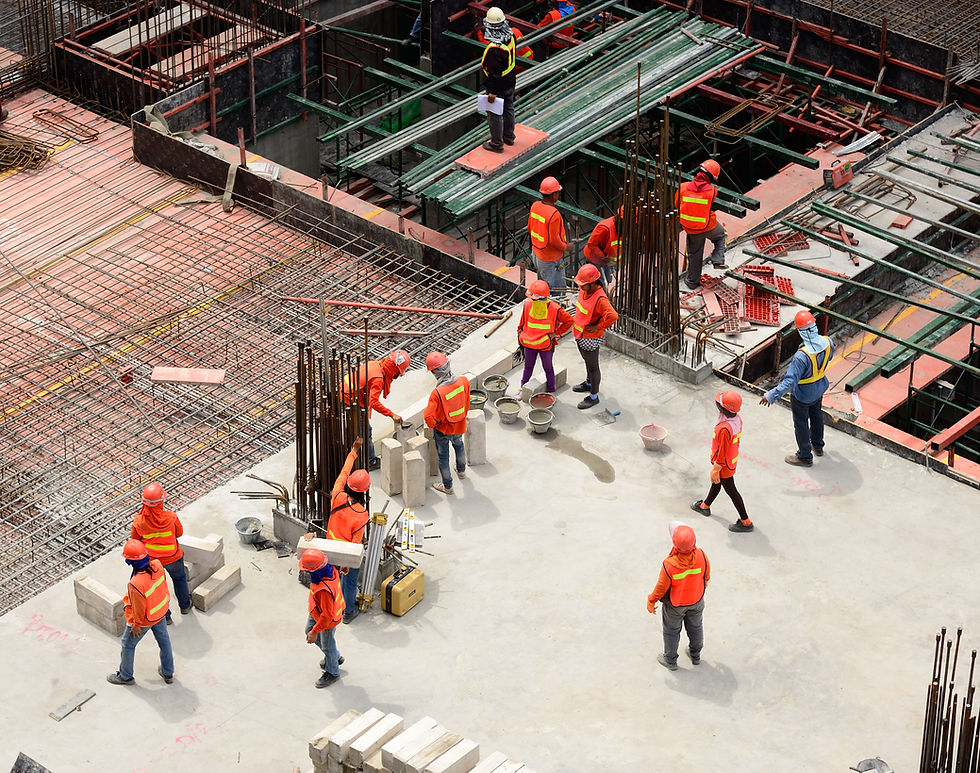Unlocking The Secrets: Why The Construction Industry Isn't Improving As Fast As It Could
- mstoots
- Feb 5, 2024
- 2 min read
The construction industry has long been heralded as a symbol of progress and development. Yet, when we take a closer look, it becomes evident that this field is lagging behind in terms of innovation and improvement. In this blog post, we'll delve into some of the key factors contributing to the construction industry's slow pace of improvement and explore potential solutions for a brighter future.

Resistance to Change
One of the most significant roadblocks to improvement in the construction industry is a resistance to change. Many construction companies have deeply entrenched processes and workflows that have been in place for decades. They are often hesitant to adopt new technologies or methodologies, fearing disruption and additional costs. This inertia prevents the industry from harnessing the full potential of innovative solutions.
Solution:
Encourage a culture of innovation within construction companies. Emphasize the benefits of adopting new technologies and processes, such as increased efficiency, reduced costs, and improved project outcomes. Providing training and resources for employees to adapt to change is crucial.
Fragmented Communication and Collaboration
The construction process involves multiple stakeholders, including architects, engineers, contractors, subcontractors, and regulatory bodies. Often, communication and collaboration between these parties are fragmented and inefficient. This lack of cohesion can lead to misunderstandings, errors, and delays.
Solution:
Implement digital collaboration tools and platforms that facilitate real-time communication and data sharing among all stakeholders. This promotes transparency, reduces miscommunication, and streamlines project coordination.
Project Complexity
Modern construction projects are increasingly complex, with intricate designs, tight schedules, and stringent regulations. Managing these complexities is challenging, and mistakes can be costly. Many construction projects also involve tight profit margins, leaving little room for errors.
Solution:
Invest in advanced project management and construction management software that can handle complex projects efficiently. Additionally, prioritize thorough planning and risk assessment before starting construction to mitigate potential complications.
Skilled Labor Shortage
The construction industry faces a persistent shortage of skilled labor, including carpenters, electricians, steamfitters, plumbers, and engineers. This shortage can lead to delays, cost overruns, and compromised quality.
Solution:
Encourage vocational training and educational programs to attract new talent to the industry. Offering competitive wages, benefits, and career development opportunities can also help retain skilled workers.
Regulatory Hurdles
Stringent regulations and permitting processes can slow down construction projects. Navigating the bureaucratic maze of approvals and compliance can be time-consuming and costly.
Solution:
Advocate for streamlined regulatory processes and work closely with regulatory bodies to expedite approvals. Additionally, invest in digital tools that help manage and track compliance more efficiently.
While the construction industry faces numerous challenges, it's essential to recognize that change is possible. Embracing innovation, improving communication and collaboration, addressing project complexities, investing in a skilled workforce, and advocating for regulatory reform are all steps toward a more efficient and improved construction industry.
By acknowledging these challenges and actively working toward solutions, the construction industry can evolve and thrive in an era of rapid technological advancement. Ultimately, the key to improvement lies in a collective commitment to change and progress.



Comments